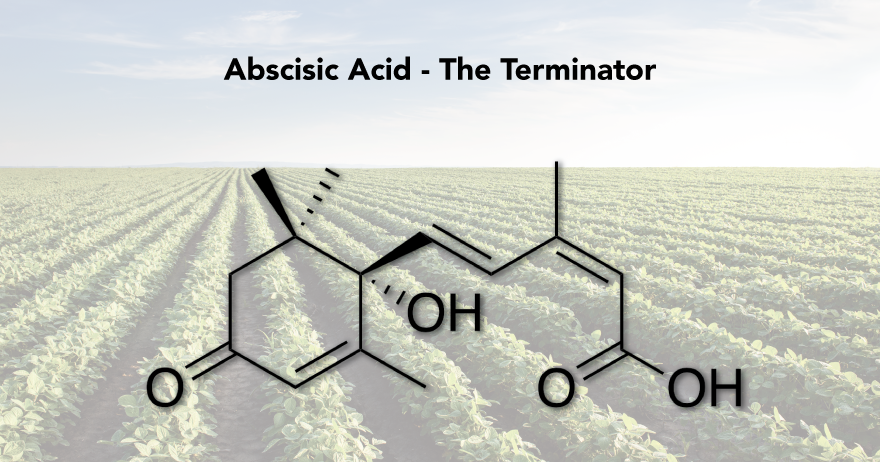Introduction to Plant Hormones: Abscisic Acid – The Terminator
The final tour of the macro hormones brings us to Abscisic acid, the dormancy hormone. We will also discuss the importance for these hormones, to be in balance for full genetic expression in the plant.
Abscisic Acid: The Terminator
- ABA is made primarily in roots and moves rapidly up to the shoots under any kind of stress:
- closes leaf surface stomata to preserve moisture
- reduces auxin levels
- inhibits cell division in shoots but not in the roots
- causes seed dormancy
- ABA promotes ripening, abscission, and seed dormancy.
- If the plant fruiting parts fail to ripen, there can be premature sprouting of grain and tubers and the storage quality/shelf life of harvested plant tissue may be severely affected.
Why Are Plant Hormones and Hormone Balance So Important?
Plant hormones affect virtually all aspects of plant growth. Understanding how hormones work and how they can be manipulated provides the ability to overcome many of the stress factors limiting plants’ natural growth cycles and genetic expression. Plant hormones are present in different levels at different development stages in the life cycle of the plant. They must be available in sufficient quantities throughout the life cycle of the plant to maximize genetic expression. The processes described in the various plant growth stages may be going on simultaneously in different parts of the plant, particularly in continuous, multiple-fruiting or in determinant crops.
Plant hormones must be constantly synthesized and regulated by the root tip cells of the plant. Maintaining and prolonging healthy root tip growth is critical to the optimal hormone balance needed for maximum genetic expression.
Other Factors Affecting Hormonal Balance
Plant hormone levels change in response to either abiotic or biotic stress for two primary reasons:
- Root caps monitor the environment and communicate these changes throughout the rest of the plant by changing the amounts of hormones present in the tissues. This process is known as “signalling.”
- Enzymes that manufacture hormones have an optimum operating temperature. Hormones cannot be made effectively at very high or very low temperatures.
Contact your Stoller sales representative for more information.

